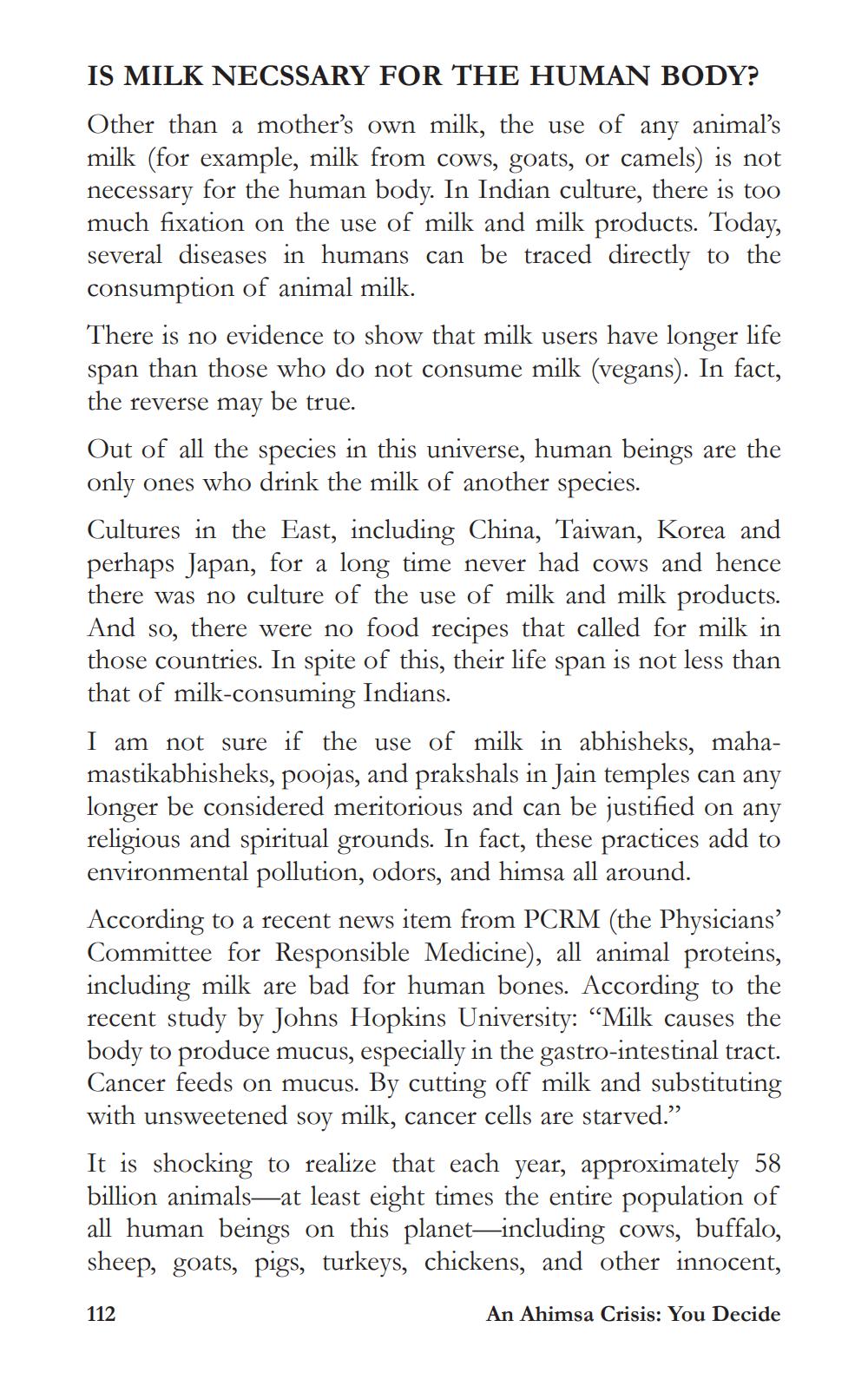________________
IS MILK NECSSARY FOR THE HUMAN BODY? Other than a mother's own milk, the use of any animals milk (for example, milk from cows, goats, or camels) is not necessary for the human body. In Indian culture, there is too much fixation on the use of milk and milk products. Today, several diseases in humans can be traced directly to the consumption of animal milk. There is no evidence to show that milk users have longer life span than those who do not consume milk (vegans). In fact, the reverse may be true. Out of all the species in this universe, human beings are the only ones who drink the milk of another species. Cultures in the East, including China, Taiwan, Korea and perhaps Japan, for a long time never had cows and hence there was no culture of the use of milk and milk products. And so, there were no food recipes that called for milk in those countries. In spite of this, their life span is not less than that of milk-consuming Indians. I am not sure if the use of milk in abhisheks, mahamastikabhisheks, poojas, and prakshals in Jain temples can any longer be considered meritorious and can be justified on any religious and spiritual grounds. In fact, these practices add to environmental pollution, odors, and himsa all around. According to a recent news item from PCRM (the Physicians' Committee for Responsible Medicine), all animal proteins, including milk are bad for human bones. According to the recent study by Johns Hopkins University: "Milk causes the body to produce mucus, especially in the gastro-intestinal tract. Cancer feeds on mucus. By cutting off milk and substituting with unsweetened soy milk, cancer cells are starved.” It is shocking to realize that each year, approximately 58 billion animals—at least eight times the entire population of all human beings on this planet—including cows, buffalo, sheep, goats, pigs, turkeys, chickens, and other innocent,
112
An Ahimsa Crisis: You Decide




